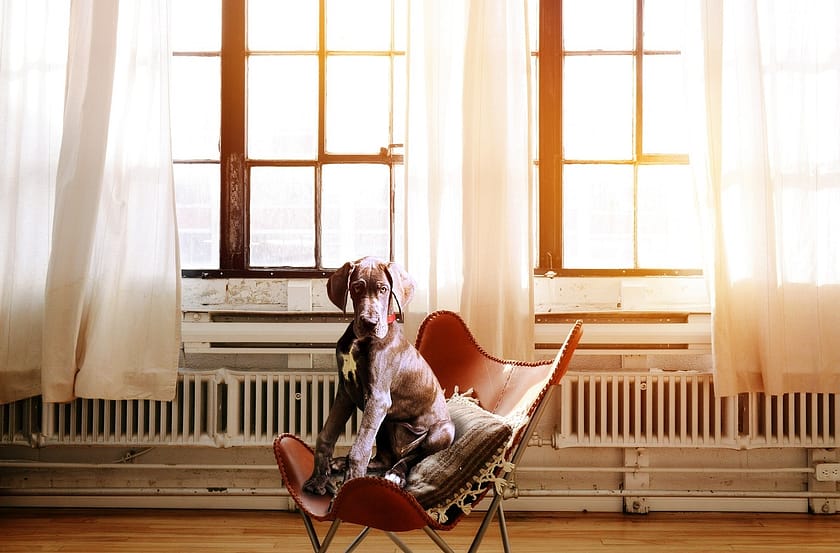The Benefits Of Crate Training Your Puppy
If you’re a new puppy owner, you may be wondering about the best methods to ensure your furry friend grows up to be a well-behaved and happy adult dog. One highly effective technique that has gained popularity among dog owners is crate training. It may sound intimidating at first, but crate training offers a multitude of benefits for both you and your puppy. From providing a safe and secure space to facilitating potty training and preventing destructive behavior, crate training can set your pup up for success in the long run. In this article, we will explore the various advantages of crate training and how it can positively impact your puppy’s development. So, let’s dive into the world of crate training and discover the incredible benefits it has to offer.
Benefits of crate training
Crate training is an incredibly valuable tool for puppy owners, as it offers numerous benefits for both you and your furry friend. From promoting a safe and comfortable environment to aiding in housebreaking and preventing destructive behavior, crate training is a valuable investment in your puppy’s well-being. Let’s explore the various advantages that crate training can provide.

Promotes safe and comfortable environment
One of the key benefits of crate training is that it creates a safe and comfortable environment for your puppy. By providing them with their own den-like space, you are giving them a sense of security and routine. This den-like atmosphere mimics their natural instincts as a den-dwelling animal and can help reduce anxiety and stress.
Furthermore, crate training protects your puppy from household hazards. By confining them to their crate when you can’t supervise them, you minimize the risk of accidents or injuries. Puppies are naturally curious and can get themselves into trouble when left unattended. Having a crate prevents them from accessing dangerous household items or areas, ensuring their safety.
Reduces anxiety and stress
Puppies, like humans, can experience anxiety and stress. This is especially true during the early stages of their life when everything is new and unfamiliar. Crate training can help alleviate these feelings and provide a sense of security and routine.
Having a designated space that they can retreat to helps puppies adapt to new surroundings more easily. Whether you’re introducing them to your home for the first time or going on a trip, their crate acts as their familiar and secure haven. This can make transitions and changes less overwhelming, reducing their anxiety and stress levels.
Crate training is also an effective way to reduce separation anxiety. Dogs are pack animals and naturally crave companionship. However, there are times when you will need to leave your puppy alone. Having a crate provides them with a safe space and gives them a sense of security when you’re not around, which can alleviate separation distress.
Aids in housebreaking
Housebreaking a puppy can be a challenging task, but crate training can greatly aid in the process. By confining your puppy to their crate when they are not supervised, you promote bladder and bowel control. Dogs naturally avoid soiling their immediate living space, so the crate encourages them to hold their urine and feces until they are taken outside.
Additionally, crate training helps establish a routine for your puppy. Dogs thrive on consistency and having a designated space for potty breaks can help them understand when and where they should relieve themselves. By taking your puppy outside immediately after they are let out of their crate, you reinforce the idea of going potty in the appropriate area.
Prevents destructive behavior
Puppies, especially during their teething stage, have a natural inclination to chew on objects. Unfortunately, this often includes furniture, shoes, and other belongings that we’d rather they leave alone. Crate training can prevent destructive behavior by keeping your puppy from accessing items that they shouldn’t be chewing on.
When confined to their crate, puppies are less likely to engage in destructive behavior. The limited space and lack of stimulus reduce their urge to chew on household items. This helps protect your valuable belongings and minimizes damage to your home.
Moreover, crate training prevents puppies from ingesting harmful substances. Many household items can be toxic if ingested, and by keeping your puppy safely contained in their crate, you can prevent accidents and keep them away from potential hazards.

Facilitates travel and relocation
Whether you’re going on a weekend getaway or relocating to a new home, crate training can make traveling with your puppy a breeze. A familiar and secure space, provided by their crate, can help your puppy feel more comfortable during transportation. The crate becomes their safe haven, making the journey less stressful for them.
Additionally, the sights, sounds, and scents of unfamiliar environments can be overwhelming for puppies. Having their crate serves as a familiar territory that gives them a sense of security even in new locations. This can significantly reduce their anxiety and help them adjust more quickly to their new surroundings.
Helps with separation anxiety
Separation anxiety is a common issue among dogs, especially when they are left alone. Crate training can be a valuable tool in managing separation anxiety and providing your puppy with a sense of security when they are alone.
By creating a safe space, your puppy can feel more at ease during periods of separation. The crate becomes their personal sanctuary, where they can relax and feel secure until you return. This sense of security can help alleviate separation distress and make the overall experience less stressful for your puppy.

Teaches self-control and discipline
Crate training is not just about confining your puppy; it is also an opportunity to teach them essential self-control and discipline. By using the crate as a tool, you can establish rules and boundaries that promote good behavior and obedience.
For example, crate training can teach your puppy to wait patiently for food. By feeding them in their crate and only letting them out when they are calm and patient, you reinforce the importance of impulse control and self-discipline. This can translate into other areas of their life, helping them become well-behaved and obedient dogs.
Provides a designated space for the puppy
Having a designated space for your puppy is crucial for their overall well-being. A crate offers them a personal territory that they can call their own. This defined space gives them a sense of ownership and helps establish boundaries within your home.
In addition, the crate provides a place for relaxation and quiet time. Just like humans, puppies need downtime to recharge and relax. By having their own space, they can retreat to their crate and enjoy some peaceful moments away from the hustle and bustle of daily life.
Furthermore, a crate helps reduce overstimulation and sensory overload. Puppies can easily become overwhelmed by too much noise, activity, or interaction. Having a safe and quiet space to retreat to allows them to decompress and rest, promoting their overall well-being.

Assists in vet visits and grooming
Visiting the vet or going through grooming procedures can be stressful for both puppies and their owners. Crate training can assist in such situations by providing a familiar and secure space for your puppy.
When you take your puppy to the vet or groomer, having their crate with them allows them to feel more at ease. The crate acts as a comforting presence in an unfamiliar environment, reducing their anxiety. It also ensures their safety during procedures, as they will remain contained and calm within their familiar space.
Promotes better sleep and relaxation
Puppies need plenty of rest and sleep to support their growth and development. Crate training can help establish a bedtime routine and create a calm and secure sleeping environment for your puppy.
By having a designated sleeping space, such as their crate, your puppy can associate it with sleep and relaxation. The familiarity and security of their crate can help them settle down for naps and nighttime, allowing for better-quality sleep.
In conclusion, crate training offers a plethora of benefits for both you and your puppy. It promotes a safe and comfortable environment, reduces anxiety and stress, aids in housebreaking, prevents destructive behavior, facilitates travel and relocation, helps with separation anxiety, teaches self-control and discipline, provides a designated space for your puppy, assists in vet visits and grooming, and promotes better sleep and relaxation. By investing time and effort in crate training, you are setting your puppy up for a lifetime of happiness and well-being.













